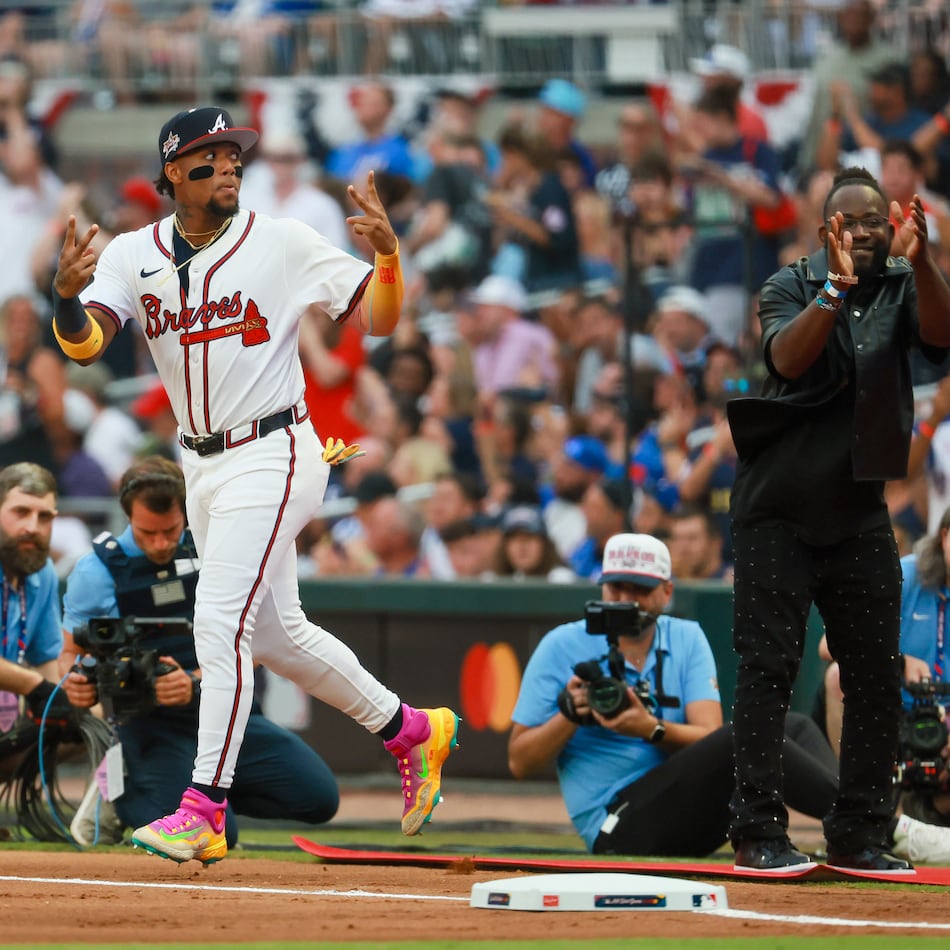The story of Alike, a Brooklyn high school student learning to embrace her identity as a lesbian, has been with writer/director Dee Rees for more than four years – as well as a lifetime.
In 2007, Rees debuted her short film, also called “Pariah” and also starring the mesmerizing Adepero Oduye as Alike (pronounced ah-lee-kay and meaning “girl who drives out beautiful women” in West African).
Four years later, a full-length version of the film, shot in 18 days and now with the pedigree of Spike Lee as executive producer, premiered at the Sundance Film Festival and scored an Excellence in Cinematography Award.
“Pariah” is inspired by Rees’ own coming out as a lesbian in her 20s, but said her experience wasn’t quite as traumatic as Alike’s tug-of-war with her parents.
“My mother and grandmother flew into New York and were like, ‘What’s wrong?’ and there was a sense of worry and guilt. I had to convince them that a) there was nothing wrong with me and b) no one was at fault and there wasn’t anyone to blame,” Rees said.
Joining her and Oduye on Team “Pariah” are Kim Wayans, playing deeply against her comedic roots as Alike’s complex mother, Audrey, and producer Nekisa Cooper, who received her M.B.A. from Clark Atlanta University and visits her Fayetteville-based parents several times a year.
Before hitting Mary Mac’s Tea Room, a favorite of Cooper’s, the foursome came to the Midtown W recently to discuss the emotionally pure film.
Q: How did you get Spike Lee involved as executive producer?
A: Rees: He was a teacher at NYU and I had him in class. He gave me one of my first internships. Nekisa asked him to get involved. He had been giving us advice on the script and budget all along, so she asked him to formally be an executive producer since he was basically acting as one.
Q: Do you foresee getting his name out there more prominently, like with Oprah Winfrey and “Precious”?
A: Rees: He’s always been very supportive, but he’s also an artist and wants to see us stand alone and thrive.
Cooper: He’s really about lifting us up. He didn’t write a check, but he gave us his time, which is even more valuable.
Q: Did you have difficulty getting funding not only for the usual independent film reasons, but because of the subject?
A: Rees: Oh, absolutely. There’s the independent film piece of it, but there’s also the black lesbian piece. People from the studios, production companies and individual investors were like, ‘Wow, the writing is really great, you guys seem fantastic, but this story is not going to be big enough. It’s too small and specific, we were told. There was one meeting where literally they said, ‘It’s really well-written, but it black and gay. If it were just black or just gay then maybe we could…’
Q: How did you wind up getting funding?
A: Rees: It was a hybrid of grants, donations and private equity. And we lived the dream, the fairytale dream, when we finished the film, took it to Sundance, Focus [Features] picked it up and we were able to pay back our investors and go into a little profit. It’s not much, but still.
Q: The movie isn’t about bullying in the traditional sense, if there is such a thing, but there are still elements of bullying in the way Alike is treated.
A: Rees: Bullying isn’t new. I guess people are just now talking about it.
Wayans: What’s new is that the bullying is causing kids to commit suicide. I don’t remember that when I was coming up. I remember kids getting bullied, but it wasn’t to the extent where they felt they had to end their own lives because they couldn’t deal with it.
Oduye: What’s changed is technology and media, so people are talking about it. People are being tortured and expressing it through video or Facebook or Twitter, so if a person does commit suicide, there’s this record or timeline, whereas before it was like, ‘Who knows what happened?’
Cooper: There’s a double bottom line and it’s bigger than just this one movie. We made this movie to hopefully open doors for other movies to be made, so if there’s not that perceived commercial success, then you won’t see another one for another couple of years. In 1991, you had ‘Boyz n the Hood,’ ‘Jungle Fever,’ all these amazing films. There were 10 or 15 black films that year. I can’t even count 10 that have come out in recent years. It’s really about helping create diversity in cinema.
Q: It’s an eye-opening movie, whether or not you know someone who is gay or going through what Alike is.
A: Oduye: After Sundance, an audience that was primarily white was able to relate to it in many different ways. You have to have more faith in what people are wanting and willing to watch. That’s what is exciting about this. I’m seeing firsthand that people are wanting to see different kinds of stories. Maybe you don’t know any gay people or it’s an issue you don’t think or care about, but seeing it, you see we’re a lot more similar than we are different. Now when you read something about LGBT issues, you might not be as blind to it and listen a little more.
Q: Kim, this is the most intense role you’ve ever played, isn’t it?
A: Wayans: By leaps and bounds. There was serious, heavy, intense stuff. To me, Audrey [Alike’s mother] is well aware of what’s going on. She knows that her marriage is falling apart and that her daughter is gay, she’s just unwilling to deal with it.
Q: What drew you to the part?
A: I like being part of the storytelling team. Life isn’t all roses and laughter, there is the darker side, the heavier themes. I can do more than just make people laugh, you know? As an artist and an actress you want to do it all. Why just have one wing when I can have both wings and fly?
Q: Adepero, what has it been like living with this character for so long?
A: I feel extremely thankful and I want to say lucky, but luck is not the word, that I found this character. Through working on Alike, it kinda helped me figure a lot of things out. Working on ‘Pariah’ really solidified my purpose in life. It really made clear the kind of work I want to do as an actor. Every day I am so deeply thankful for the experience. I will always, always be proud to have been a part of this.
Movie preview
“Pariah”
Starring: Adepero Oduye, Kim Wayans. Written and directed by Dee Rees.
Rated R for sexuality and language. 1 hour 26 minutes. At Landmark Midtown.
About the Author
Keep Reading
The Latest
Featured


